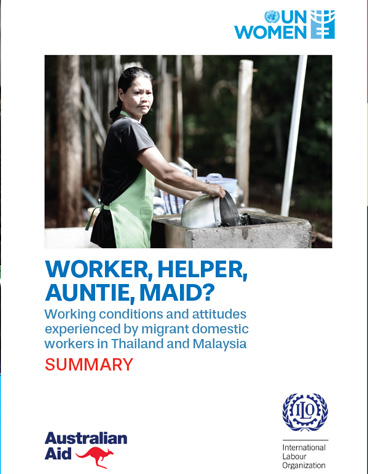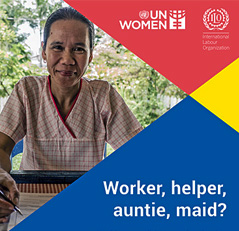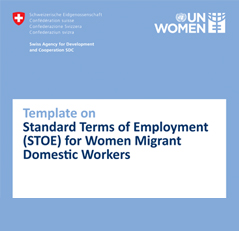
Worker, helper, auntie, maid? | Summary

Working conditions and attitudes experienced by migrant domestic workers in Thailand and Malaysia
This study is one of the first to focus on the attitudes and behaviour of employers and service providers towards domestic workers. It has been important to combine the broader issues of public attitudes towards domestic workers with the scope of legislative protection and working conditions at individual and household levels. The particular vulnerabilities and challenges associated with this sector were recognized by the international community in the ILO Domestic Workers Convention, 2011 (No. 189). However, more still needs to be done to understand underlying factors influencing the employment experiences lived by migrant domestic workers, as well as the links between employment relationships and public attitudes to migrant and domestic workers.
This is an extended summary of an in-depth study that can be found at: http://bit.ly/2fZvGCy
As does the full report, this summary begins with an overview of the concept of domestic work, a brief explanation of the methods used and the background to the issues in the region, particularly public attitudes. Then the specifics of employment relations in the home are explained, with a focus on working time and the importance of autonomy, wages, and social security. This is followed by an exploration of the ways in which domestic workers themselves manage relations in the private household, and the importance of collective voices working together to ensure that rights are recognized. Finally the study offers concrete, evidence-based, gender-responsive policy recommendations.

